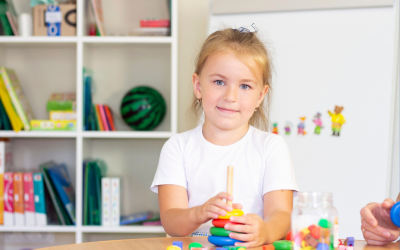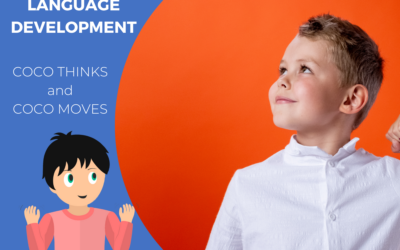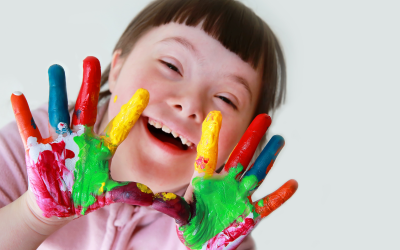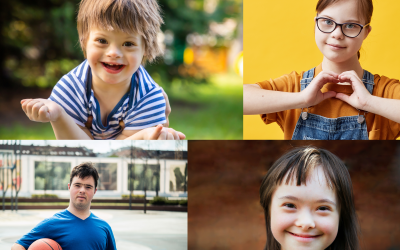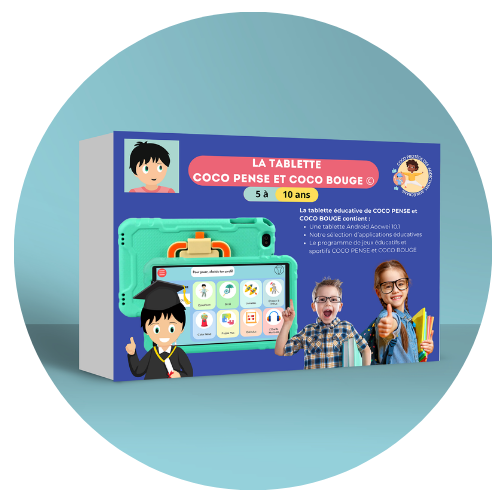It is often said that school is the temple of knowledge. Learning disabilities can occur at any time. Most often, the child had difficulties completing his activities. He often has his head in the clouds: there are many signs that indicate learning difficulties that parents need to take into account early on.
What is the difference between a learning disability and a disorder?
For a parent, it is sometimes easy to confuse learning difficulties with learning disabilities in a child. Indeed, a learning disability can occur as a result of various factors. These include: affective, cognitive and educational factors. For example, at the affective level, the learning difficulty may appear with anxiety or a lack of motivation. Pedagogically, the difficulty arises when the working method seems to be inadequate. In addition, frequent moves with a change of school can cause a discontinuity in learning methods. Be aware that learning difficulties can be corrected by parents or a teacher at school. They are not permanent, but these difficulties are temporary.
As for learning disabilities, they are not related to your child’s motivation or intelligence. A learning disability tends to persist despite some adaptive arrangements to deal with it. It is not a question intellectual or sensory deficit, but can cause a delay compared to another child of his age.
What are the warning signs of a learning disability?
It is possible to recognize the problem by certain elements. Here are 6 signs that a child has a learning disability.
Lacking concentration
A child who shows a lack of concentration is a sign of a learning disability. Under these conditions, the child is unable to focus on the activity or task he or she is supposed to perform. He seems to be distracted by various elements in his environment. It must also be said that this distraction often comes from his own thoughts. For example, the child will have difficulty taking various lessons. Hence the parent’s observation of half copied lessons at school. A child who has difficulty concentrating will have difficulty completing homework.
Getting easily distracted
Sometimes a child who is not paying attention is easily left behind. This may be the result of a learning disability. In this case, it is noticeable that the child is slow to follow certain instructions. For many children, it is mostly about instructions given for the first time by the teacher or parent. You get the impression that the child is in a daydream. In other children, you may notice a difficulty in remembering the requested exercises. Is he/she able to copy an exercise on the board without any problems? A negative response may suggest a learning disability.
Changing behavior
A learning disability is also reflected by unusual gestures. Absences from school that multiply without explanation. The child seeks to avoid the teachings given. Repeated turns in the toilet. He will do everything with the intention of getting away from any possible situation that could increase his stress or anxiety. These different behaviors should somehow attract your attention.
Always opposing to a situation
When a child expresses his or her wishes by objecting, it may be for a variety of reasons. This is the case when toddlers refuse to take a bath or eat a fruit they don’t like. In terms of learning disability, this may be reflected in a refusal to do homework. Moreover, when he decides to actually do them, he takes time to finish them.
In addition to this way of opposing, there is an avoidance of school tasks. He sees them as a painful chore to endure. The child may favor certain subjects over others in which he or she has good grades. There are still repeated conflicts with other children.
Poor academic performance
Every parent expects their children to get the best grades in school. That is why we will provide the child with all the necessary means to succeed. However, if we see declining or poor results instead, this raises questions. Children with reading or writing difficulties will not necessarily do well academically. Difficulty in writing may be manifested in the formation of the letters of the alphabet or in spelling errors.
Difficulty finishing an activity
If the child does not finish the activity or gets bored quickly, it is because, on the one hand, he or she did not understand what was being asked. On the other hand, it could be a lack of concentration or a difficulty. This happens whether it is a school or group activity. Although what needs to be done is age and pace appropriate, you can help your child with appropriate alternatives.
What parents should not do?
As a parent, it is normal to ask to set up action to get your child out of learning difficulties. However, certain reflexes should be avoided.
Don’t beat up on the child
Parents can be overly perfectionist when it comes to their child’s success, and toddlers’ attitudes can exasperate them. However, avoid lashing out at the child.
We often hear this injunction over and over again: “make an effort”. However, pressing it for results is not the answer.
Follow their evolution
It is necessary to help your child learn. But if you don’t care about these changes in behavior, it can make things worse. You can help your child through activities with short time frames.
A child must remain an actor in his work. Avoid doing his activities for him.
Use the educational program
COCO THINKS and COCO MOVES
The COCO THINKS and COCO MOVES app contains more than 30 educational games to work on English, math, logic, memory or attention. In addition, this great educational app imposes a sports break every 15 minutes of screen time to teach measured screen use.
Much smarter than a parental control!
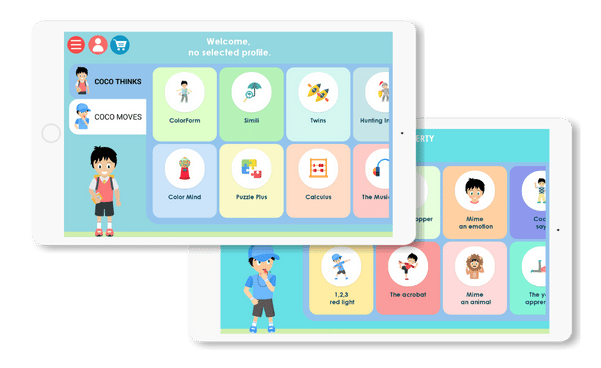
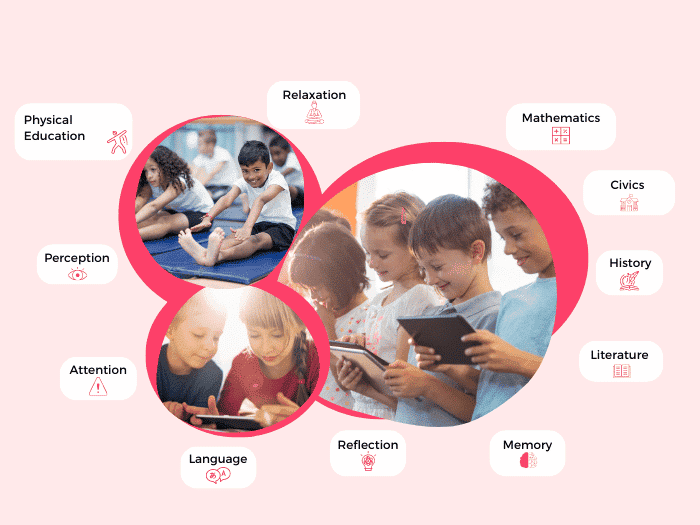
COCO also accompanies children with special needs
Other articles that might interest you:
Supporting children with autism
Dynseo proposesSUPPORTING CHILDREN WITH AUTISM with COCO THINKS AND COCO MOVESDynseo and its team are very much...
Supporting DYS children with COCO THINKS and COCO MOVES
Dynseo proposesDYS disorders with COCO THINKS and COCO MOVESOur educational and pedagogical games program COCO THINKS...
Language development
Children communicate from birth with movements, crying, looking at each other or with smiles. After only a few months,...
Supporting children with Down Syndrome with Coco
Dynseo proposesDOWN SYNDROME with COCODown syndrome is a non-hereditary chromosomal abnormality that leads to the...
Supporting people after a stroke
Dynseo proposesStroke with CLINT, your brain training coachThe Dynseo team is very involved in helping people who have...
Supporting someone with Alzheimer’s
In this guide, we will detail how SCARLETT can be used for supporting someone with Alzheimer's. SCARLETT is a...
10 myths about the human brain you didn’t know
The brain is an incredible muscle, however there are many things we do not know, and what we do know is not always...
Using Digital Tools to Support Students with Special Educational Needs
Special Educational Needs (SEN) encompass a wide range of learning difficulties and disabilities that can hinder a...
Down Syndrome and Communication: Facilitating Interaction with Visual and Interactive Supports
When we think about Down syndrome, we often recognize it as a genetic condition that affects physical and cognitive...
How to Track Progress in People with Down Syndrome Using Digital Tools
Down syndrome, a genetic condition caused by the presence of an extra chromosome 21, affects approximately 1 in every...



